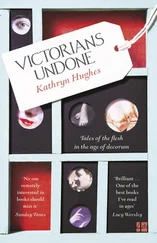The overall mood of the area was one of gentility under assault. Bordered by a few housing estates and hemmed in between Richmond Park and the railway line to Waterloo, its position on the South Circular Road meant that the traffic in Sheen could sometimes be an annoyance. But without needing to take part in the school run Walter and Floss could pick and choose when they traveled. It seemed to most of their friends that they lived a peculiarly quiet life.
Crow Williams retained the band name and continued to work the pub circuit, playing many of the old songs written by Walter. He rechristened the band the Stand, but it became known, and billed, as Crow Williams and His Stand. As he was not about to adopt any kind of gimmicky Walter-inspired posing onstage, there were some disappointed customers. But he surprised everyone by taking over the microphone and proving himself a good singer. He also wrote decent songs. Given the chance, he would complain a little about Walter’s defection, partly because he felt Walter was missing out on the pub rock ethic that was like bread and water laced with nectar to Crow.
On one subject Crow could be prone to outbursts that shattered his otherwise super-cool demeanor: the Hansons had insinuated themselves into Andréevich’s affections and obtained permission to use the defunct band name Hero Ground Zero once used by Paul Jackson. They were on the verge of filling stadiums with their extremely ambitious progressive rock that veered into baroque classical music and artful jazz. Three of the original band were included, despite their age; they gave the revived band dignity. Crow, the only one left in the Stand’s original lineup, was appalled, and said so.
“Why would anyone even bother digging up that old Hero Ground Zero bollocks?” He remained friends with the Hansons, especially with Steve with, whom he’d grown up, but he was always scathing, even to his face. “It isn’t new. It isn’t even fuckin’ old. It’s rambling, self-indulgent, self-glorifying, and egoistic.”
Selena meanwhile became a professional healer and worked in specialist clinics set up in the NHS with the sanction of Prince Charles. Despite this dignified role, she still appeared to be crazy to most of her friends. No man had ever taken her on, despite her prettiness, except for a wild night, or at best a wild week. I think she often felt lonely, and was one of the few of their old friends who saw Walter regularly and that was because she remained so close to Floss. But whenever she could, when she had access to Walter alone, discreetly behind Floss’s back, she would remind him that she would always love him, and would always be willing to take him. Of course it was years later that I learned all this from Selena, but I had always wondered what Selena’s motive for visiting Walter had been. It wasn’t obvious, it didn’t seem to be about trying to seduce him, not then. I believe that maybe she simply wanted to be near him occasionally. And no doubt she missed Floss, her childhood friend. She put on a little weight as the quiet years passed, and her angelic references became increasingly bizarre.
“Yesterday I realigned the universe,” she once said to me in passing, looking as though it had been as tiresome as doing the laundry. “I was one of a thousand angels conscripted for the job. It isn’t easy being me.”
But on the other hand she really did seem to help people when she set her mind to it, whether it was with hospice care, emotional or creative blockages, or even mundane medical problems like back pain.
She decided that Walter was creatively blocked, and was always trying to persuade him to allow her to spend time with him as a healer. I came to accept that she simply wanted to help, just as I did.
Of course I knew Walter was not really blocked; he simply blocked anyone who wanted to draw him back into his old musical world, or into art in any form. I had helped so many visual artists to break through their mental problems and become successful artists that I felt I was failing Walter in some way. But Walter was a musician and that was not my area. Yet there were famous musicians in rock and pop who had done such amazing work, either because they were mentally wobbling or because of stress, or drugs, or whatever pressed them into new and extraordinary worlds.
Syd Barrett had simply taken too many drugs—and, sensitive artist that he was, he eventually broke down. Nevertheless, we were all the beneficiaries of his talent and his wild mind. His early work with Pink Floyd had been sublime and anarchically adventurous.
Peter Green had been a founder of Fleetwood Mac before they became so huge and one of the greatest blues players of the sixties. He simply found success was not what he wanted, nor could he cope with it. We used to see him wandering the streets near my gallery in Richmond, his fingernails allowed to grow so long that he could not play guitar.
Syd and Peter had dropped out of the music business and never made it back in.
Walter worried me, and I found him frustrating too. I felt that he was on the brink of some kind of useful madness, some kind of visionary capability, something close to the Asperger’s syndrome so common among my Outsider artists, but, as I say, I was concerned I was failing him by being unable to help him take the next step.
I also felt that part of Walter’s journey, in an odd way I didn’t fully understand, was that his memory had sharpened. When I went to their house he would lead me around the extraordinary garden he had created in suburban Sheen, and list flowers, plants, shrubs, insects, birds, butterflies, worms, beetles—extinct and extant: the list was never-ending. Quite apart from the maze the garden itself was a complex and evolving design, with spirals and alleyways and cul-de-sacs and vistas that were infinitely and finely detailed.
In a way he had cheated by making dense trellises on which he grew climbing plants, which defined and provided density in the maze several years before the slower-growing hedges caught up. The climbing plants also filled the air with perfume and the garden with spring color. Finding oneself lost in the labyrinth was never claustrophobic or unnerving; when it happened to me I wanted to remain lost for hours, and finding the way out always felt a bit deflating. If I could have transformed Walter’s garden into a painting, it would have been magnificent.
So although I worried about him, I also believed that he was trying to manage his creative explosions through the work he did as a gardener.
And I knew that he was still hearing something, something remarkable, or disturbing.
Somewhere between the wind and the waves lies the collateral for the second movement. We have heard the fall of a glass cathedral and the collapse of a building like an airport terminal. To lead from the first movement to the second, a voice, almost human, wails a continuous note. The voice, if in fact it is a voice, is racked with pain, is gargling blood and chewing regurgitated flesh. The sweep of the wind, for that is what it is, caresses with broom-like fronds of air stroking over an endless landscape, gently at first, stirring the trees, the leaves, the dust from the woodland paths. Then gusts break up the soothing, hissing breaths, each one harder than the one before. Building to thunderous, house-shaking punches. Punches that, at the very moment they deliver a thrust of pressurized fresh air, knock every last gasp out of the lungs. Then that ancient whistling howl, from eternity: whooooowwwow, whooooooowwwoooow, whoooooooooo . Like an air-raid siren over London in the Blitz, and equally portentous. This tempest can blow us directly into the jaws of hell, fan its flames, and feed its fire. Then the crash of a wave so huge, a tsunami-like wall of water falling onto the wind like a huge hand waving away an insignificant skein of smoke. The earthquake in the first movement has created this terrible wall of water? Perhaps. There is more than one wave, there are more, each more complex, more developed than the last. Crashing, folding, weeping, seeding, sanding, flowing, pebbling, rolling, whooshing, and fading. Receding. The voice that remains now, after the tumult of the second movement, is human, no doubt about it now. It is the voice of a child, a little girl, of about seven or eight years old, and she is singing happily. She is using a language for her song that is completely made up. It sounds like a mixture of French, Italian, Spanish, and some Mandarin Chinese. As she sings we can hear that she is playing with water, and possibly sand, on a beach or in a backyard sandbox. She pours water into the sand, sand into the little container of water, back and forth.
Читать дальше












